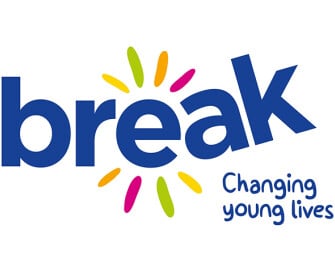Care leavers given vital lifeline to independence
Young people leaving care are being given the critical support they need to help take those first steps to independence thanks to a cash boost of nearly £90,000 from the Office of the Police and Crime Commissioner for Norfolk.Norfolk-based charity Break was awarded the vital grant over a three-year period to support youngsters in choosing the right path as they move into adulthood and help them avoid crime and anti-social behaviour.
The cash injection has already had a positive impact on many care leavers who previously felt they were “not really prepared at all” to live independently or had “literally no support” and now feel more confident to face the world.

PCC Lorne Green, who visited Break recently, said: “It was an absolute pleasure to meet with a team of such dedicated people who are so passionate about supporting children in care.
“These young people are some of the most vulnerable members of our society and it is vital they receive the right help and support to allow them to make the right choices on their road to independence.
“One of my key priorities is reducing vulnerability and it is reassuring to hear the grant has already made a difference to the lives of young people in Norfolk.”
The PCC grant has supported Break’s Moving On Team who give particularly vulnerable care leavers intensive support they would not otherwise have access to.
The money also funds the use of volunteer mentors who meet regularly with young people and support their positive engagement within their local communities.
During his visit to Break Lorne met with staff at a children’s home in King’s Lynn and witnessed the work of the charity at its new ‘Moving On House’.
Rachel Cowdry, Director of Business Development, at Break, said: “The PCC grant has enabled us to provide more intensive support to care leavers, particularly those that are more vulnerable to being drawn into offending behaviour.
“It has provided intensive transition support to care leavers by experienced and dedicated workers and trained and supervised mentors.
“This work is particularly vital not only because the care leavers deserve the best chance to have a positive future but also as the cost to society of not providing this intensive support at the vulnerable stage of transition from residential care to independence is extremely high and often increases over time.
“The young people supported by the grant have been extremely vulnerable, some have already been involved with the Criminal Justice System, others have mental health issues, some have had precarious accommodation arrangements and some have challenging relationships with family members and friends leading them to be very vulnerable to offending behaviour.”
Before the grant care leavers told Break:
“I wasn’t really prepared at all” to live independently. “I had literally no support”.
“It was very emotionally exhausting moving out [of the children’s home] and felt like a huge hole had been punched through my chest”.
But through the PCC grant care leavers have said:
“I feel good that I have the support from Break.”
“Staff guided me step by step.”
“This has been a very good experience with lots of support.”
Break was created as a charity nearly 50 years ago to provide respite breaks for families with children with disabilities in north Norfolk. Now Break’s principal activities are:
- Residential children’s homes for children and young people in care
- Transition support and mentoring for children and young people in care and those leaving residential care
- Therapeutic fostering
- Residential services and short breaks for children and young people with disabilities
- Therapeutic and targeted interventions for children and families in need
- Residential assessment centres for families in crisis

CASE STUDIES:
*Shaun lived in residential care until the age of 18. He suffers from a number of mental and physical conditions which affect his mobility, concentration and memory and have a considerable negative impact in his motivation. However, through the PCC grant, Shaun has been helped by his transition worker to move into independent accommodation. He has completed an apprenticeship and is currently being encouraged to get involved with volunteering to increase his employability and motivation. Shaun is also receiving support with money management. A mentor is also helping him to think about his future and set long term goals.
Michael currently lives in one of Break’s Moving on Houses where he is supported by a transition worker who is helping him to become more independent by teaching him practical skills such as cooking and cleaning. With support Michael has also managed to secure a job and is managing to overcome issues with building and maintaining relationships. He is developing social skills, learning to control his behaviour and is developing maturity in his ability to handle himself and others in social situations. With assistance from his transition worker, he hopes to move into independent accommodation soon.
Carl moved from supported housing to independent accommodation with the support of his transition worker and mentor. Carl settled in well but suffers with depression and struggles to spend time alone and allows friends to regularly stay with him. His transition worker is helping him to set boundaries to ensure friends do not take advantage of his situation. Carl is also being encouraged to explore volunteering and training to improve his self-esteem. Carl’s transition worker and mentor are also providing vital support in other areas such as family life and relationships and are looking to increase his confidence to help him continue to make positive steps.
*All names have been changed to prevent identification.

Published
Share